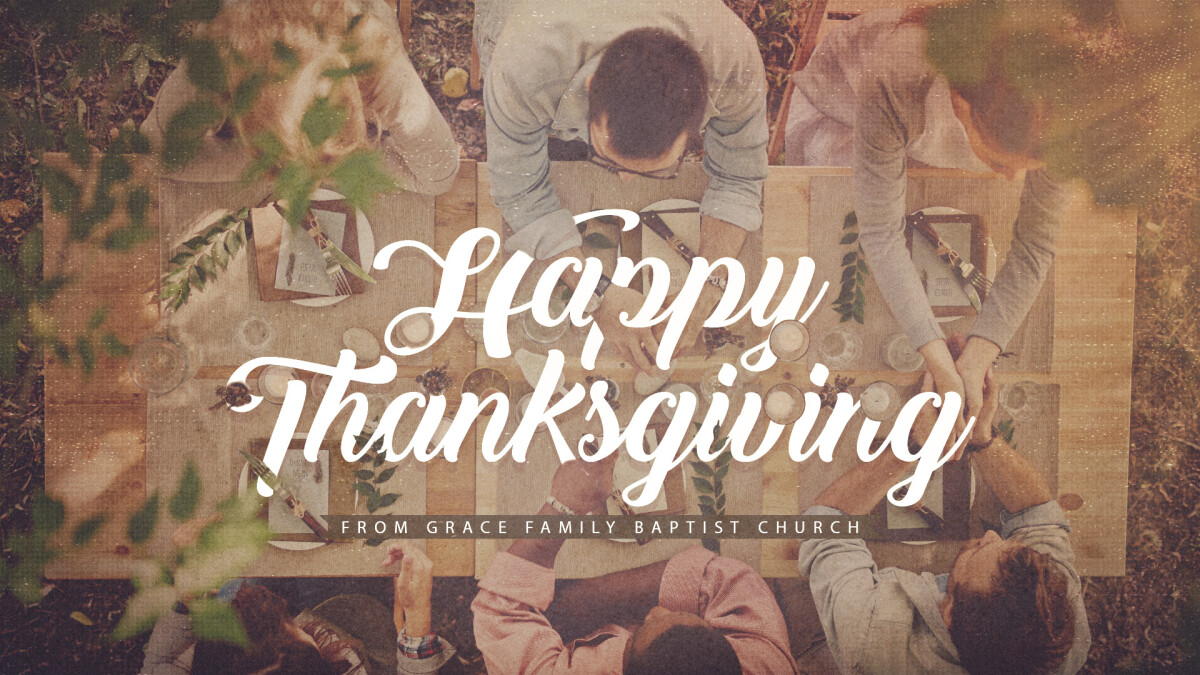
Thanksgiving is an American holiday that stretches all the way back to a time long before America became a nation. The Pilgrims landed in 1620. They faced brutal conditions and were woefully unprepared. Roughly half of them died in that first year. Then they had a successful harvest of corn. In November of
Edward Winslow was among those who ate that first
“Our harvest being gotten in, our governor sent four men on fowling, that so we might after a special manner rejoice together after we gathered the fruit of our labors. …And although it be not always so plentiful as it was at this time with us, yet by the goodness of God, we are so far from want.”
In addition to the fowl eaten that first Thanksgiving, the Indians also brought along five deer as their contribution to the feast.
Over the centuries, Americans continued to celebrate feasts of thanksgiving in the fall. Some presidents issued proclamations. Abraham Lincoln issued a proclamation for a perpetual national holiday set aside for
“I do therefore invite my fellow citizens in every part of the United States, and also those who are at sea and those who are sojourning in foreign lands, to set apart and observe the last Thursday of November next, as a day of Thanksgiving and Praise to our beneficent Father who dwelleth in the Heavens.”
So we have a holiday of thanksgiving born in and further nurtured during times of great adversity and struggle. We might think that times of adversity and challenge would spawn ingratitude, while times of prosperity would spawn gratitude. Sadly, the reverse is true. A chilling scene from the animated television
Prosperity breeds ingratitude. The writers of the Heidelberg Catechism knew this. Question 28 asks what it benefits us to know that God creates and sustains all things. The answer is it gives patience in adversity and gratitude in prosperity. Moses also knew this. In Deuteronomy, he looks ahead to times of material prosperity for Israel, then sternly warns, inspired by the Holy Spirit, not to forget God. “Beware lest you say in your heart, ‘My power and the might of my hand have gotten me this wealth’” (Deut. 8:17). We did this all ourselves. Thanks for nothing. Human nature
Another culprit breeding ingratitude is our entitlement culture. Simply put, why should we be grateful for what we deserve and what we have a right to? I was owed this, goes the culture, therefore why would I say thank you?
A third culprit concerns what UC Davis professor of psychology Dr. Robert Emmons calls the “to whom” question. In his scientific study of gratitude, Emmons came to the realization that gratitude raises a singular and significant question: When we say thank you, to whom are we grateful?
The interesting thing here is that if we trace this “to whom” line of questioning back, like pulling on the threads of some tapestry, we find a singular answer at the end of each and every thread. The answer is God. To whom are we grateful? We are grateful in an ultimate sense to God.
Our Benefactor does “good by giving you rains from heaven and fruitful seasons, satisfying your hearts with food and gladness” (Acts 14:17). Theologians call this common grace. God as creator cares for all His creation and provides for our needs. He gives us our very lives and our very breath.
Our Benefactor also does good by giving His most precious gift, the gift of His Beloved Son. Theologians call this saving grace. Gifts often cost the giver. What a costly gift the Father has given us in sending the Son. So Paul exclaims, “Thanks be to God for his inexpressible gift” (2 Cor. 9:15).
When we consider God as the “to whom” we are thankful, we may well be seeing both the necessity of thanksgiving and the eclipse of thanksgiving. As culture veers more and more towards a secular state it shrinks back from gratitude. So vainly we think we did this all ourselves. So wrongly we think we
We should not be counted among those who see the fourth Thursday in November as nothing more than a day of football and over-indulgence. We should be thankful for one day set apart to consider all that we have and realize that all that we have has been given to us. Of course, such gratitude should in no wise be limited to one day out of 365.
Having been imprisoned for one year, four months, and eighteen days in a Nazi cell measuring 6 ft. x 9 ft, Dietrich Bonhoeffer wrote what is certainly a reminder of the meaning of the Thanksgiving holiday:
“You must never doubt that I’m traveling with gratitude and cheerfulness along the road where I’m being led. My past life is brim-full of God’s goodness, and my sins are covered by the forgiving love of Christ crucified. I’m so thankful for the people I have met, and I only hope that they never have to grieve about me, but that they, too, will always be certain of and thankful for God’s mercy and forgiveness.”
Original post found at Ligonier.org
https://www.ligonier.org/blog/what-is-thanksgiving-day/
